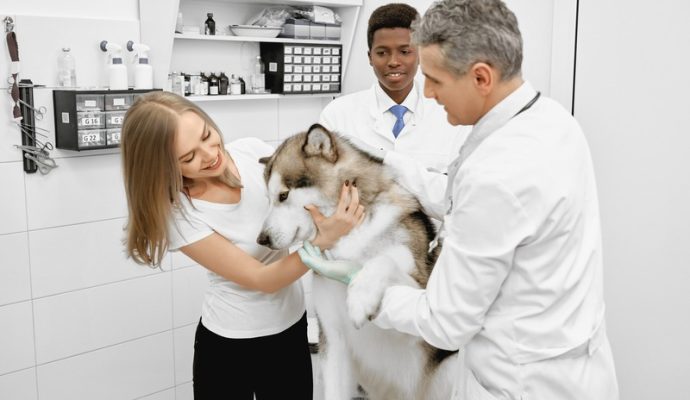We love our pets; they’re part of the family. And just like any other family member, we want to ensure they’re healthy and happy. But when it comes to keeping them in tip-top shape, how often should we be taking them for a checkup? It’s not as if our furry friends can speak up and tell us when something’s wrong. Regular visits to the vet are essential, but frequency could vary—let’s break it down, keeping things simple for all the pet parents out there.
Understanding the Basics of Pet Health Care
First things first, each pet is unique, and their needs can vary by age, breed, and lifestyle. However, there are some general guidelines we can follow to ensure that we’re providing the best care for our companions.
Young Puppies and Kittens
When your pet is young, they’re growing rapidly, and their immune system is still developing. This is a critical time for establishing a healthcare routine that includes:
-
Initial health checks and vaccinations
-
Setting up a deworming plan
-
Discussing spaying and neutering options
-
Planning for preventive vaccinations
This period requires more frequent visits, usually every 3 to 4 weeks until they’re about 4 months old, to ensure they’re growing as they should and to complete their initial vaccination series.
Adult Pets
Adult pets, generally those between 1 and 7 years old, typically need an annual visit to the vet. This annual checkup often covers the following areas:
-
Physical Examination: A comprehensive check to spot any underlying health changes.
-
Booster Vaccines: Keep immunity up-to-date with recommended vaccines.
-
Parasite Control: Tests and treatments to manage and prevent infestations.
-
Dental Check: Teeth and gum care to prevent disease and decay.
-
Nutritional Advice: Tailored diet plans for optimal health and energy levels.
Remember that prevention is better than cure. Regular checkups help identify potential health issues early, which often makes treatment simpler and less costly.
Senior Pets
As pets get older, their health needs can change dramatically. In their golden years—usually starting around 7 to 8 years of age, though this can vary by breed and size—they may require more frequent vet visits. It’s a good idea to have them evaluated every 6 months. Senior pets often need more diagnostic testing, such as bloodwork or urine analysis, to keep an eye out for age-related conditions.
When Extra Vet Visits Are Necessary
Sometimes, regardless of their life stage, our pets might need a little extra care. Be vigilant for signs that could indicate it’s time for an additional checkup. If you notice any of the following, it’s probably wise to schedule a visit:
-
Changes in appetite or water consumption
-
Unexpected weight loss or gain
-
Behavioral changes
-
Signs of pain or discomfort
-
Skin issues, like rashes or hair loss
If an issue is serious, your pet may need to see a vet surgeon for further evaluation or surgery. This could be the case for injuries or conditions that can’t be managed through medication or lifestyle changes alone.
Understanding Emergencies
In case of an emergency, immediate veterinary care is crucial. Keep an eye out for any urgent symptoms such as severe vomiting or diarrhea, difficulty breathing, signs of extreme pain, or any other drastic changes in your pet’s health or behavior. In these situations, don’t wait—get your pet to a vet or emergency animal hospital right away.
Keeping Track and Staying Proactive
It’s up to us to keep an eye on our pet’s health. Keep a health diary or set reminders for their regular checkups and vaccination schedules. Also, stay informed about their health needs:
-
Research your pet’s breed-specific health risks
-
Ask your vet about preventive care and tips
-
Educate yourself on pet nutrition and exercise needs
Your vet is an invaluable resource on this journey. You should feel empowered to ask questions or express concerns during your pet checkup. With a solid plan and a trusted vet, we can set the stage for a long, healthy life for our furry friends.
Considering Costs
One aspect of pet healthcare that must be addressed is cost. Vet visits, especially if they include diagnostic tests or treatments, can add up. It’s worth considering pet insurance or a savings plan specifically for veterinary care to help manage these expenses. Always discuss all your options with your vet; they understand that cost is a factor and will often help you determine the best course of action that fits your budget.
Final Thoughts
Maintaining your pet’s health is a journey that requires attention and care at every stage of their life. Regular checkups are essential to this process, helping ensure that your pet remains in the best health possible. From your playful kitten to your loyal senior dog, timely vet visits, along with your diligence in monitoring their well-being, create the cornerstone of preventive care. In between those visits, cherish every moment with your furry friends, and rest assured that you’re doing your part to keep them thriving.




